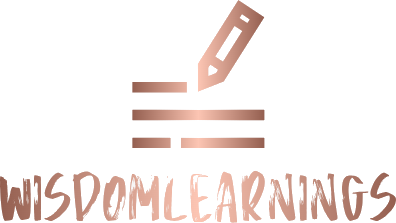Table of Contents
Blockchain technology, often associated with cryptocurrency, has evolved far beyond its origins as the backbone of digital currencies. Its decentralized, transparent, and immutable nature makes it a powerful tool for a wide range of applications across various industries. From supply chain management to healthcare and beyond, blockchain is poised to revolutionize numerous sectors. This article explores several real-world applications of blockchain technology, demonstrating its potential to create transformative change.

Supply Chain Management
One of the most promising applications of blockchain technology is in supply chain management. Traditional supply chains often involve multiple intermediaries, each adding layers of complexity and potential for inefficiencies. Blockchain’s ability to provide a single, transparent ledger of transactions can streamline this process.
By recording every step of a product’s journey on a blockchain, stakeholders can gain real-time visibility into the supply chain. This transparency helps to verify the authenticity of goods, track their origins, and ensure compliance with regulatory standards. For example, in the food industry, blockchain can trace the path of products from farm to table, allowing consumers to verify the quality and origin of their food, thus enhancing food safety and reducing the risk of contamination.
Healthcare
In healthcare, blockchain technology holds the potential to address several critical issues, including data security, patient privacy, and interoperability. Medical records stored on a blockchain can be accessed securely by authorized parties while remaining tamper-proof. This ensures that patient data is both protected and accurate.
Additionally, blockchain can facilitate better coordination of care by enabling different healthcare providers to share information seamlessly while maintaining data integrity. This can lead to improved patient outcomes through more informed and timely decisions. Blockchain can also streamline the management of clinical trials and pharmaceutical supply chains, ensuring that drug provenance and trial data are verifiable and trustworthy.

Financial Services
Beyond its role in cryptocurrencies, blockchain technology is making waves in the financial services industry. One key application is in cross-border payments, where blockchain can significantly reduce transaction times and costs. Traditional international transfers often involve multiple intermediaries, leading to delays and high fees. Blockchain’s decentralized nature eliminates the need for these intermediaries, enabling faster and more cost-effective transactions.
Blockchain is also being used to enhance security and transparency in financial transactions. Smart contracts—self-executing contracts with the terms directly written into code—can automate and enforce agreements without the need for intermediaries. This reduces the risk of fraud and error, providing a more secure and efficient financial system.
Real Estate
The real estate industry is another sector where blockchain technology is making a significant impact. Property transactions traditionally involve extensive paperwork and multiple intermediaries, including brokers, title companies, and lawyers. Blockchain can simplify this process by providing a single, transparent ledger for recording property transactions.
Smart contracts can automate various aspects of property transactions, such as the transfer of ownership and the release of funds. This not only speeds up the transaction process but also reduces the risk of fraud and ensures greater accuracy. Additionally, blockchain can facilitate fractional ownership of real estate, allowing investors to buy and sell shares of properties more easily and efficiently.

Voting Systems
Blockchain technology offers promising solutions for improving the integrity and transparency of voting systems. Traditional voting methods are often criticized for their susceptibility to fraud, manipulation, and lack of transparency. Blockchain can address these issues by providing a secure and immutable record of votes.
A blockchain-based voting system allows voters to cast their ballots electronically while ensuring that each vote is recorded accurately and cannot be altered. This increases confidence in the electoral process and helps to prevent tampering or fraud. Additionally, blockchain’s transparency can provide a verifiable audit trail, making it easier to verify election results and ensure the integrity of the voting process.
Intellectual Property
Intellectual property (IP) management is another area where blockchain can offer significant benefits. The technology can be used to create a transparent and immutable record of IP ownership and licensing. This helps to protect the rights of creators and ensures that they are fairly compensated for their work.
Blockchain can also facilitate the creation and enforcement of digital rights management (DRM) systems. By recording IP rights on a blockchain, creators and licensors can track the use of their content, manage licensing agreements, and enforce their rights more effectively. This can lead to reduced piracy and improved revenue for content creators.
Conclusion
Blockchain technology, often synonymous with cryptocurrencies, is proving to be a versatile and transformative tool with applications far beyond digital currencies. From enhancing supply chain transparency and improving healthcare data management to revolutionizing financial services, real estate transactions, voting systems, and intellectual property management, blockchain is set to drive significant change across various industries.
As blockchain technology continues to mature, its potential applications are likely to expand further, offering new solutions to existing challenges and creating opportunities for innovation. Embracing blockchain’s capabilities and addressing its associated challenges will be crucial for unlocking its full potential and realizing its benefits in the real world.


